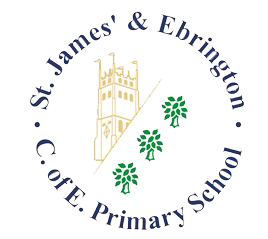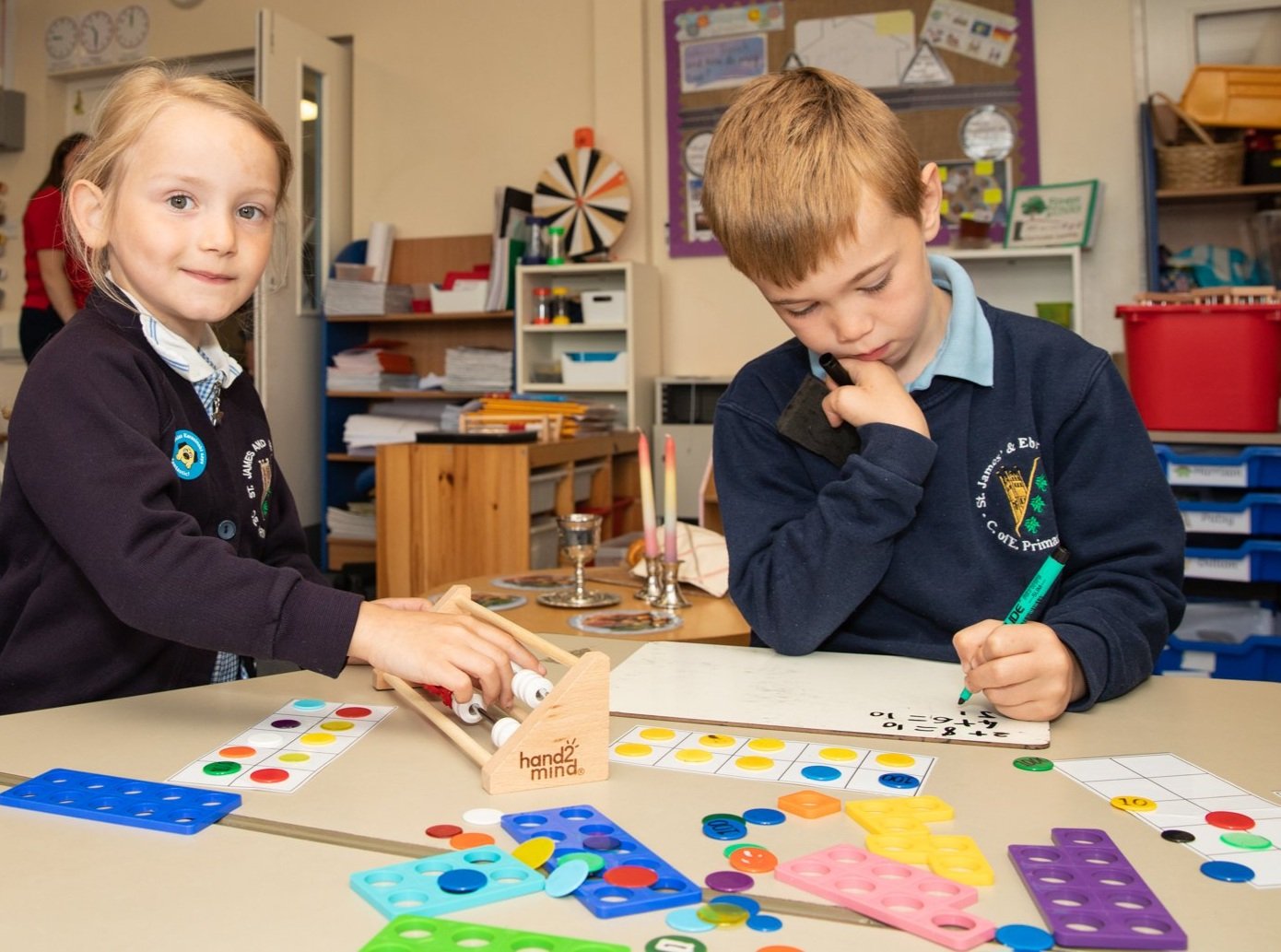Maths
At St.James’ and Ebrington we use the CanDoMaths approach to teaching and follow their sequence of learning for each year group from Year 1. A powerpoint structure is used to teach and develop children’s mathematical understanding. Each ‘I can’ is taught using the following steps:
Hook it, Teach it and Practice - where a concept is introduced, modelled by the teacher and practised using the I do, We do, You do approach before children start the Do it activitiy.
Do it - Up to 5 examples – 5 ‘What it is’ or ‘3+2 ‘What it is/What it’s also’
Secure it - or 2 Misunderstandings (True/false, Spot the mistake)
Deepen it - Apply understanding to solve new problems
Our approach to teaching Maths has the following intent for the pupils at St. James’ and Ebrington:
Be curious - Due to the design of our Maths teaching sequences, use of small steps, and focus on teaching for mastery, children’s learning is open-ended which enables all children to explore, question, and flourish to reach their individual potential
Love learning - All children are provided with rich learning experiences that enhance their mathematical knowledge, language, and skills. Our curriculum is inclusive through the careful delivery of low threshold, high ceiling teaching, nurturing the abilities of all children within the class allowing all children to fulfil their mathematical ability and develop a love of learning in a system that suits them.
Grow together with respect - Children are taught to value each other’s opinions in Maths through the use of our key sentence stems (I challenge that… I support that …). Children are encouraged to use perseverance and a positive mindset to see mistakes as opportunities to learn and respect each other by offering support for them to grow. Through our classroom ethos all children’s successes and misconceptions are celebrated.
Maths Purpose of Study
Mathematics is a creative and highly interconnected discipline that has been developed over centuries, providing the solution to some of history’s most intriguing problems. It is essential to everyday life, critical to science, technology, and engineering, and necessary for financial literacy and most forms of employment. A high-quality mathematics education therefore provides a foundation for understanding the world, the ability to reason mathematically, an appreciation of the beauty and power of mathematics, and a sense of enjoyment and curiosity about the subject. - The National Curriculum


